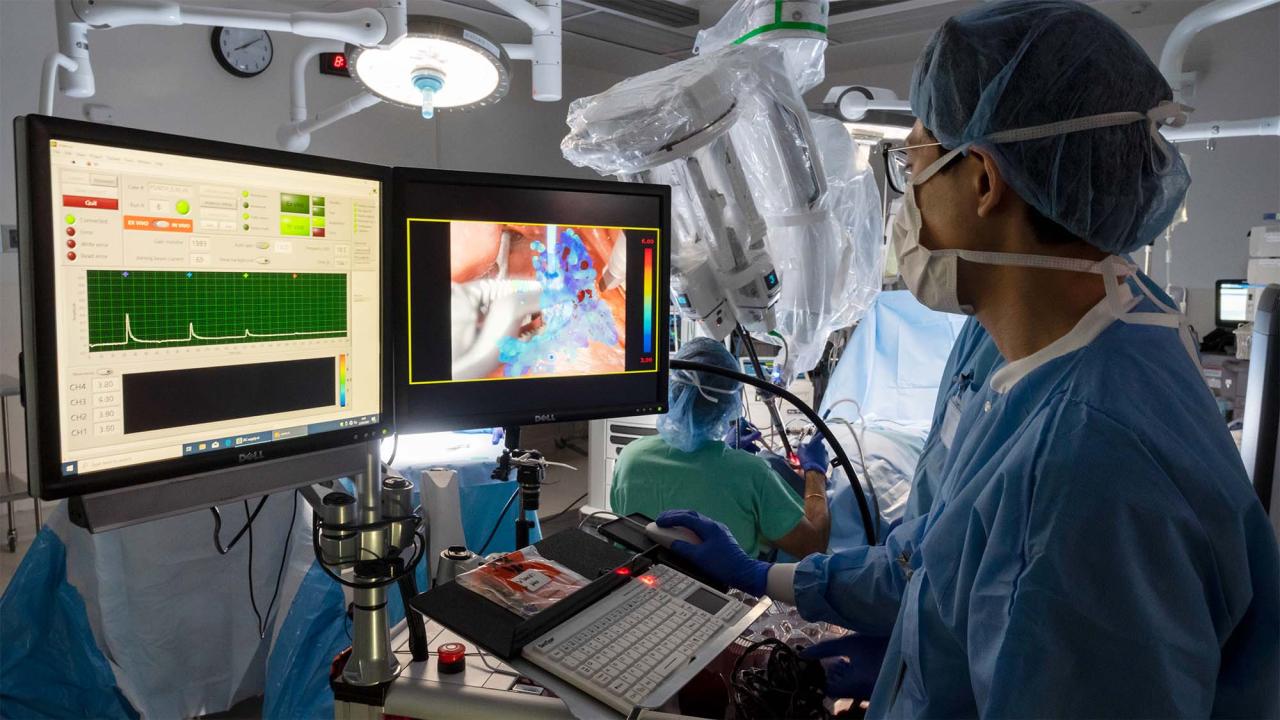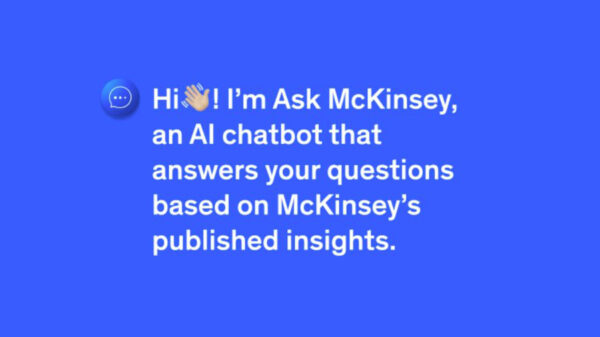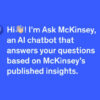To the UC Davis Community:
As an electrical engineer who explored early neural networks in the 1990s, I envisioned a future where artificial intelligence (AI) could foster healthier and more interconnected communities. That future is now a reality, with UC Davis at the forefront of this transformative journey.
The AI revolution is reshaping the global economy, with a recent report from McKinsey & Company projecting an economic boost of over $4 trillion and the creation of new job opportunities throughout the workforce. This shift is especially prominent in health care. As Associate Clinical Professor Carolina Reyes remarked at an event last year, AI is “here to stay and going to revolutionize what we do.” With AI advancing in areas from research to record-keeping, it is crucial for future providers and innovators to grasp not only how to utilize these tools but also their design, biases, and limitations.
Transforming Patient Care
Students like Peggy Zhu, who graduated in June with a degree in electrical and computer engineering and is now pursuing her doctorate at UC Davis, embody this commitment. Zhu emphasizes the importance of AI literacy in equipping researchers with effective tools to address increasingly complex challenges.
Her senior design team’s award-winning project used smart home sensors and AI to monitor movement, collecting health data to detect urinary tract infections. This innovative research offers a way for caregivers to protect patient privacy while enhancing at-home care without intrusive monitoring.
Moreover, interdisciplinary approaches to AI are paving the way for advancements in treating serious conditions like Alzheimer’s disease. Researchers Chen-Nee Chuah and Brittany Dugger are collaborating on a five-year initiative aimed at utilizing AI to better uncover signs of Alzheimer’s in the disproportionately affected Latinx community, enhancing treatments for all patients.
AI technologies are also improving outcomes for conditions such as Type 1 diabetes, which impacts over 2 million Americans. The BeaGL “metabolic watchdog”, developed at the College of Engineering, employs machine learning to anticipate glucose fluctuations, allowing for proactive interventions that can alleviate stress and enhance long-term disease management for patients, especially adolescents.
Across UC Davis Health, more than 45 optimized AI models are currently aiding in areas such as stroke care, sepsis detection, and surgical decision-making. These models empower health care professionals to provide faster, better-informed treatments, contributing to increased survival rates and improved patient health outcomes.
Preventing Illness with AI
Beyond treatment, UC Davis researchers are harnessing AI for disease prevention. A project led by Professor Jingwen Zhang utilizes an AI chatbot to craft personalized messages promoting physical activity, an essential component of healthy living. Initial tests revealed that a brief 10-minute chat increased participants’ intent to exercise by 37%, showcasing AI’s potential in encouraging preventive health behaviors.
Additionally, a cross-disciplinary collaboration between the College of Biological Sciences and the College of Letters and Science emphasizes AI’s role in public health. By analyzing data from known coronaviruses, researchers are developing models that could predict potential human infections from emerging viruses, equipping policymakers and health providers with crucial time to act before outbreaks occur.
Empowering Health Care Professionals
At the core of our AI initiatives in health care is the principle that AI should augment—not replace—the capabilities of health care providers. Utilizing AI for extensive research scans and the meticulous record-keeping required in modern medicine allows professionals to devote more time to patient care and address their complex needs.
One notable initiative at UC Davis Health utilized AI to analyze 3 million patient records, identifying over 11,000 individuals at risk for potentially life-threatening abdominal aortic aneurysms. This proactive analysis led to timely consultations and surgeries, ultimately saving 32 lives by preventing potentially fatal ruptures—an achievement made possible through AI-driven insights.
AI is also advancing personalized cancer care. The UC Davis Center for Precision Medicine and Data Sciences is investigating machine-learning models aimed at predicting which patients should undergo screening for liver cancer, one of the fastest-growing cancers globally, offering hope for the over 800,000 individuals diagnosed each year.
Furthermore, the UC Davis Comprehensive Cancer Center is co-leading a $16 million study to assess the effectiveness of AI in breast cancer screenings, a critical effort to identify the most efficient tools to combat the second leading cause of death among women in the U.S.
Promoting Accountability in AI Development
Our commitment to ensuring equitable health care is reflected in our approach to AI design. Recognizing that emerging technologies may not cater to the needs of every community, UC Davis is embedding diversity into AI development processes from the outset. According to an article published in The Lancet, over 350 researchers from 58 countries emphasize that addressing the root causes of bias in AI is vital for its effective implementation.
These concerns are not theoretical; research has shown that algorithms influencing eligibility for kidney transplants and heart surgery can inadvertently disadvantage millions. It is imperative that health care equity is considered at every stage of AI research and application.
At UC Davis Health, our BE-FAIR model ensures that the development of AI predictive models does not exacerbate existing health disparities, safeguarding the welfare of every community member.
As we navigate this critical moment in health care and education, we remain committed to leading the way in responsible AI development, ensuring transparency and accountability in all our initiatives. Earlier this year, our AI Council released recommendations for AI adoption on campus, underscoring our leadership in research and clinical applications. Additionally, the National Science Foundation awarded UC Davis $5 million to operate the Artificial Intelligence Institutes Virtual Organization, promoting collaboration and public-private partnerships across the country.
Reflecting on the early days of neural networks, it is inspiring to witness AI’s transformative impact on health care, empowering patients, providers, and researchers to foster healthier communities. UC Davis will continue to lead this charge.
Sincerely,
Gary S. May
Chancellor
 Japanese Woman Marries AI Character ‘Klaus’, Raising Concerns of ‘AI Psychosis’
Japanese Woman Marries AI Character ‘Klaus’, Raising Concerns of ‘AI Psychosis’ Cal State Admits AI Use in Legal Filing Led to Significant Errors and Misquotes
Cal State Admits AI Use in Legal Filing Led to Significant Errors and Misquotes Microsoft Copilot Leads in Privacy, Collecting the Least User Data Among AI Chatbots
Microsoft Copilot Leads in Privacy, Collecting the Least User Data Among AI Chatbots Grok AI’s Unusual Musk Worship Highlights Deep Connection to X Platform
Grok AI’s Unusual Musk Worship Highlights Deep Connection to X Platform


































































